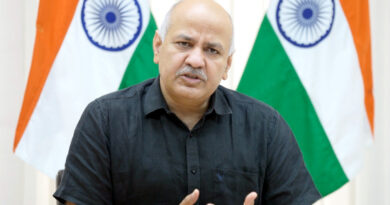Bail to sex offenders: Supreme Court asks AG to suggest ways to improve gender sensitivity towards victims
The order came in a case where the Madhya Pradesh High Court ordered an alleged molester to visit his victim and ‘allow’ her to tie a ‘rakhi’ on him
The Supreme Court on Monday asked Attorney General K.K. Venugopal to suggest ways for courts to improve gender sensitivity towards victims while laying down bail conditions for sex crime offenders.
The order came in a case where the Madhya Pradesh High Court ordered an alleged molester to visit his victim and ‘allow’ her to tie a ‘rakhi’ on him.
A three-judge Bench led by Justice A.M. Khanwilkar wanted Mr. Venugopal, senior advocate Dushyant Dave, appearing for two retired High Court judges and a few women lawyers who had filed the petition represented by senior advocate Sanjay Parikh to help it lay down guidelines for courts on what sort of bail conditions were permissible while providing bail to the accused in sex offence cases.
“The Attorney General can highlight the issues and make recommendations to include in the bail conditions,” Justice Khanwilkar orally observed.
“This will be an opportunity by the court to initiate gender sensitisation,” Mr. Venugopal submitted.
The Bench scheduled the next hearing for November 27.
On October 16, the Bench had decided to seek the views of Mr. Venugopal in this issue.
The Bench had expressed its concern about the conditions imposed by the Madhya Pradesh High Court.
‘Trivialisation of trauma’
The nine lawyers, led by advocate Aparna Bhat, said the High Court order was a “trivialisation of her (victim’s) trauma”.
Mr. Parikh said there were many such instances of court orders which objectified women already traumatised by the crimes committed against them.
The law prescribed that the victim be kept far away from the accused. Instead, here, the Madhya Pradesh High Court had ordered the accused to visit the home of the woman — the very place where the crime was alleged to have occurred.
The petition said the court had further ordered the accused to gift the woman ₹11,000 “as a customary ritual usually offered by brothers to sisters on such occasion and shall also seek her blessings”.
It had also ordered the accused to offer ₹5,000 to the woman’s son for the “purchase of clothes and sweets”.
Mr. Parikh said such orders only succeeded in victimising the woman and retarding the years of work done to sensitise the courts about how damaging it would be to attempt a compromise “by way of marriage or mediation between the accused and the survivor”.



